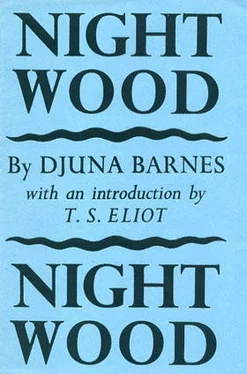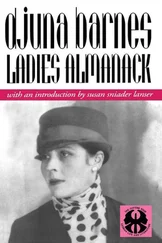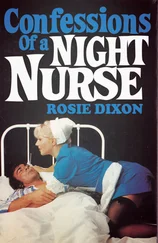‘Perhaps, Matthew, there are devils? Who knows if there are devils? Perhaps they have set foot in the uninhabited. Was I her devil trying to bring her comfort? I enter my dead and bring no comfort, not even in my dreams. There in my sleep was my grandmother, who I loved more than anyone, tangled in the grave grass, and flowers blowing about and between her; lying there in the grave, in the forest, in a coffin of glass, and flying low, my father who is still living; low going and into the grave beside her, his head thrown back and his curls lying out, struggling with her death terribly, and me, stepping about its edges, walking and wailing without a sound; round and round, seeing them struggling with that death as if they were struggling with the sea and my life; I was weeping and unable to do anything or take myself out of it. There they were, in the grave glass, and the grave water and the grave flowers and the grave time, one living and one dead and one asleep. It went on forever, though it had stopped, my father stopped beating and just lay there floating beside her, immovable, yet drifting in a tight place. And I woke up and still it was going on; it went down into the dark earth of my waking as if I were burying them with the earth of my lost sleep. This I have done to my father’s mother, dreaming through my father, and have tormented them with my tears and with my dreams: for all of us die over again in somebody’s sleep. And this, I have done to Robin: it is only through me that she will die over and over, and it is only through me, of all my family, that my grandfather dies, over and over. I woke and got up out of bed and putting my hands between my knees I said, “What was that dream saying, for God’s sake, what was that dream?” For it was for me also.’
Suddenly, Dr. Matthew O’Connor said: ‘It’s my mother without argument I want!’ And then, in his loudest voice he roared: ‘Mother of God! I wanted to be your son—the unknown beloved second would have done!’
‘Oh, Matthew. I don’t know how to go. I don’t know which way to turn! Tell her, if you ever see her, that it is always with her in my arms—forever it will be that way until we die. Tell her to do what she must, but not to forget.’
‘Tell her yourself,’ said the doctor, ‘or sit in your own trouble silently, if you like, it’s the same with ermines—those fine yellow ermines that women pay such a great price for—how did they get that valuable colour? By sitting in bed all their lives and pissing the sheets, or weeping in their own way. It’s the same with persons; they are only of value when they have laid themselves open to “nuisance"—their own, and the world’s. Ritual itself constitutes an instruction. So we come back to the place from which I set out; pray to the good God, she will keep you. Personally I call her “she” because of the way she made me; it somehow balances the mistake.’ He got up and crossed to the window. ‘That priceless galaxy of misinformation called the mind, harnessed to that stupendous and threadbare glomerate compulsion called the soul, ambling down the almost obliterated bridle path of Well and Ill, fortuitously planned—is the holy Habeas-Corpus, the manner in which the body is brought before the judge—still—in the end Robin will wish you in a nunnery where what she loved is, by surroundings, made safe, because as you are you keep “bringing her up", as cannons bring up the dead from deep water.’
‘In the end’, Nora said, ‘they came to me, the girls Robin had driven frantic—to me, for comfort!’ She began to laugh. ‘My God,’ she said, ‘the women I’ve held upon my knees!’
‘Women’, the doctor said, ‘were born on the knees, that’s why I’ve never been able to do anything about them, I’m on my own so much of the time.’
‘Suddenly, I knew what all my life had been, Matthew, what I hoped Robin was—the secure torment. We can hope for nothing greater, except hope. If I asked her, crying, not to go out, she would go just the same, richer in her heart because I had touched it, as she was going down the stairs.’
‘Lions grow their manes and foxes their teeth on that bread,’ interpolated the doctor.
‘In the beginning, when I tried to stop her from drinking and staying out all night, and from being defiled, she would say—"Ah, I feel so pure and gay!” as if the ceasing of that abuse was her only happiness and peace of mind; and so I struggled with her as with the coils of my own most obvious heart, holding her by the hair, striking her against my knees, as some people in trouble strike their hands too softly; and as if it were a game, she raised and dropped her head against my lap, as a child bounces in a crib to enter excitement, even if it were someone gutted on a dagger. I thought I loved her for her sake, and I found it was for my own.’
‘I know,’ said the doctor, ‘there you were sitting up high and fine, with a rose-bush up your arse.’
She looked at him, then she smiled. ‘How should you know?’
‘I’m a lady in no need of insults,’ said the doctor. ‘I know.’
‘Yes,’ she said. ‘You know what none of us know until we have died. You were dead in the beginning,’
The twilight was falling. About the street lamps there was a heavy mist. ‘Why don’t you rest now?’ asked the doctor. ‘Your body is coming to it, you are forty and the body has a politic too, and a life of its own that you like to think is yours. I heard a spirit mew once, but I knew it was a mystery eternally moving outward and on, and not my own.’
‘I know,’ she said, ‘now.’ Suddenly, she began to cry, holding her hands. ‘Matthew,’ she said, ‘have you ever loved someone and it became yourself?’
For a moment he did not answer. Taking up the decanter, he held it to the light.
‘Robin can go anywhere, do anything,’ Nora continued, ‘because she forgets, and I nowhere, because I remember.’ She came towards him. Matthew,’ she said, ‘you think I have always been like this. Once I was remorseless, but this is another love—it goes everywhere, there is no place for it to stop—it rots me away. How could she tell me when she had nothing to tell that wasn’t evidence against herself?’
The doctor said, ‘You know as well as I do that we were born twelve, and brought up thirteen, and that some of us lived. My brother, whom I had not seen in four years, and loved the most of all, died, and who was it but me my mother wanted to talk to? Not those who had seen him last, but me who had seen him best, as if my memory of him were himself; and because you forget Robin the best, it’s to you she turns. She comes trembling, and defiant, and belligerent, all right —that you may give her back to herself again as you have forgotten her—you are the only one strong enough to have listened to the prosecution, your life; and to have built back the amazing defence, your heart!
‘The scalpel and the Scriptures have taught me that little I did not already know. And I was doing well enough’, he snapped, ‘until you came along and kicked my stone over, and out I came, all moss and eyes; and here I sit, as naked as only those things can be, whose houses have been torn away from them to make a holiday, and it my only skin—labouring to comfort you. Am I supposed to render up my paradise—that splendid acclimatation—for the comfort of weeping women and howling boys? Look at Felix now, what kind of a Jew is that? Screaming up against tradition like a bat against a window-pane, high-up over the town, his child a boy weeping “o’er graves of hope and pleasure gone".
‘Ah, yes—I love my neighbour. Like a rotten apple to a rotten apple’s breast affixed we go down together, nor is there a hesitation in that decay, for when I sense such, there I apply the breast the firmer, that he may rot as quickly as I, in which he stands in dire need or I miscalculate the cry. I, who am done sooner than any fruit! The heat of his suppuration has mingled his core with mine, and wrought my own to the zenith before its time. The encumbrance of myself I threw away long ago, that breast to breast I might go with my failing friends. And do they love me for it? They do not. So have I divorced myself, not only because I was born as ugly as God dared premeditate, but because with propinquity and knowledge of trouble I have damaged my own value. And death—have you thought of death? What risk do you take? Do you know which dies first, you or she? And which is the sorrier part, head or feet? I say, with that good Sir Don, the feet. Any man can look upon the head in death, but no man can look upon the feet. They are most awfully tipped up from the earth. I’ve thought of that also. Do you think, for Christ’s sweet sake,’ he shouted suddenly, ‘that I am so happy that you should cry down my neck? Do you think there is no lament in this world, but your own? Is there not a forbearing saint somewhere? Is there no bread that does not come proffered with bitter butter? I, as good a Catholic as they make, have embraced every confection of hope, and yet I know well, for all our outcry and struggle, we shall be for the next generation not the massive dung fallen from the dinosaur, but the little speck left of a humming-bird; so as well sing our Chi vuol la Zingarella (how women love it!) while I warble my Sonate au Crépuscule, throwing in der Erlkönig for good measure, not to mention Who is Sylvia? Who is anybody!
Читать дальше












